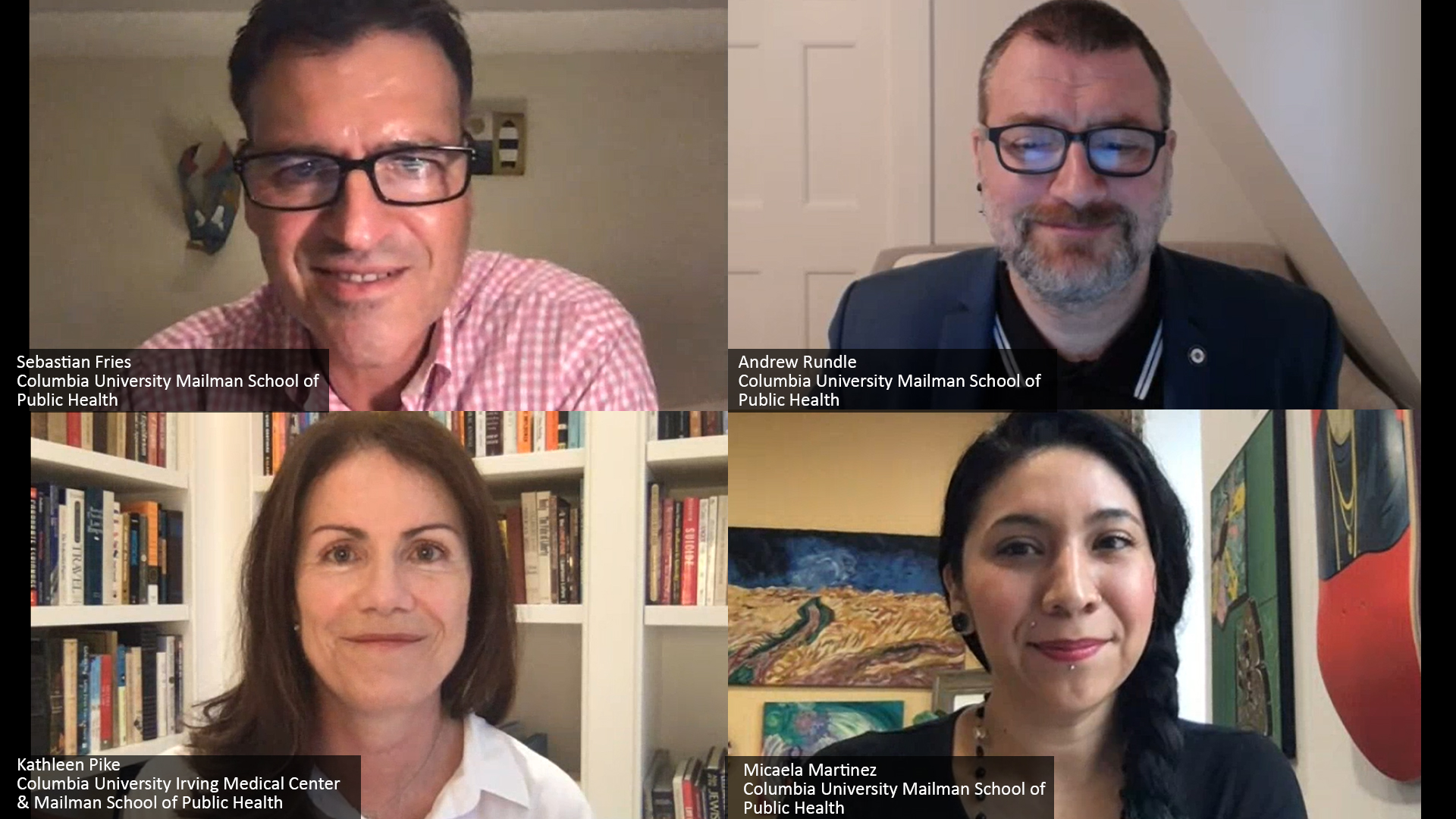Doing business during the pandemic: Partnering with public health for greater impact

“If companies own the responsibility and opportunity to lead in their community, and if they use this information from public health to do it, it will be good for their employee health, and it will be good for their mental health. And ultimately, it will be good for the company’s business.” – Kathleen Pike, Professor of Psychology, Columbia Mailman University Mailman School of Public Health
UIDP hosted an Oct. 28 webinar with experts from Columbia University Mailman School of Public Health who addressed real-world problems employers face from the COVID-19 pandemic. I’m sharing the link to the full webinar, a few key takeaways, and a downloadable resource–please share with your organization’s human resources, benefits, and risk management leadership.
For months, we’ve been bombarded by information about case numbers, testing, contract tracing, PPE supplies, and everything else. It’s a challenge for organizations, from big multi-nationals to small businesses, to sort through so much information and make operational decisions. Columbia Mailman has experienced unprecedented outreach from companies and has developed actionable guidance—to help us all get through this pandemic while making sure employees stay healthy and safe.
Columbia Mailman brought a sector-leading public health perspective and tremendous value to the discussion. We saw three concrete examples of this work during the webinar.
- Kathleen Pike, Ph.D., partnered with AXA Asia to develop a toolkit for business leaders and managers to support employee mental health during and beyond the COVID-19 pandemic. Everyday life has drastically changed with both work-from-home and school-from-home changing the family dynamic and restructuring social contact. Stress and, at times, trauma are a normal result, and business leaders and team managers can and should ensure their organizations successfully address the impact. The toolkit that was developed as a result of this partnership, Supporting Mental Health of Employees During and Beyond COVID-19, provides practical guidance on how to protect and promote employee mental health and coping skills, as well as opportunities for employees to talk about their needs and access services. There are dozens of resources for addressing specific mental health concerns in the toolkit; it’s an incredible resource for any CEO or HR leader.
- Micaela Martinez, Ph.D., partnered to create a public health academy for HR professionals, working with Nomadic Learning, a digital education platform that builds interactive learning resources. Human resource representatives aren’t public health experts, but in many organizations, they’re the point person for developing new COVID-19 safety policies. She talked about keeping up with the rapidly evolving knowledge about how the virus spreads and what practices are required for safe working environments, and also shared how evidence-based public health research shaped the practical guidance for Nomadic’s training resources.
- Andrew Rundle, DrPH, and his team of researchers developed a forecasting tool to help U.S. organizations make critical decisions based on projected cases of COVID-19, down to the county level. These data-driven insights allow decision makers to see a complete and consolidated picture of community-level risk, which can be integrated into an organization’s existing risk management strategy in a seamless and coherent way.
Since we aired the webinar, participants have reached out to Columbia Mailman to learn more about how they can lead by applying these practical public health tools and data in their organizations and, by extension, in their communities. It’s good for health, and it’s good for business. If you would like to learn more, contact Sebastian Fries and his colleagues at Columbia University Mailman School of Public Health.



